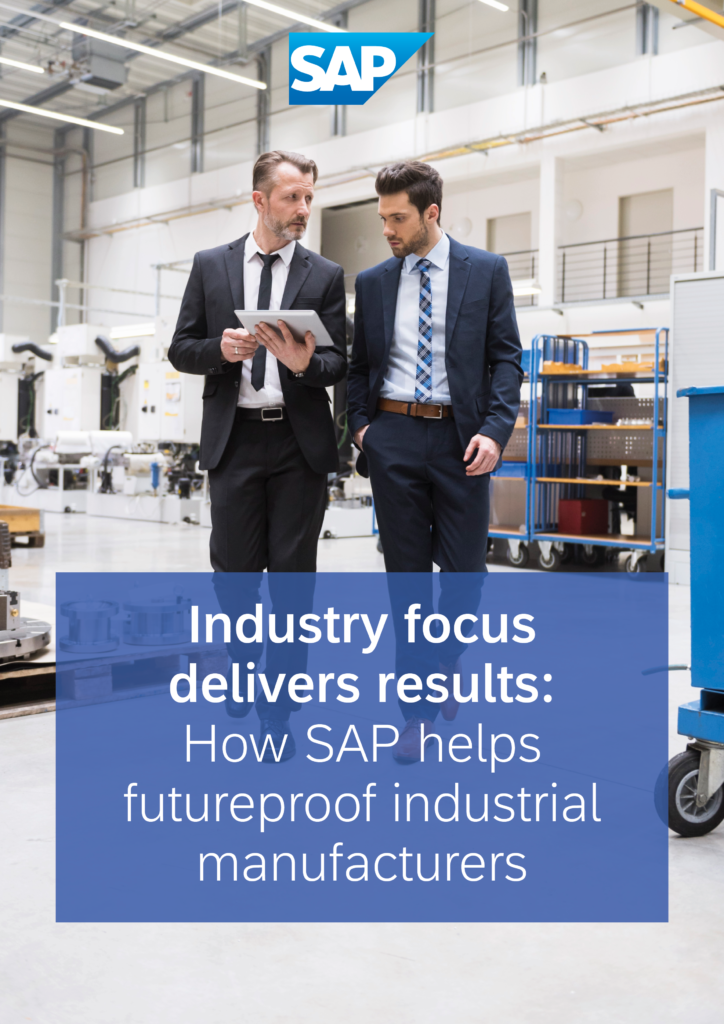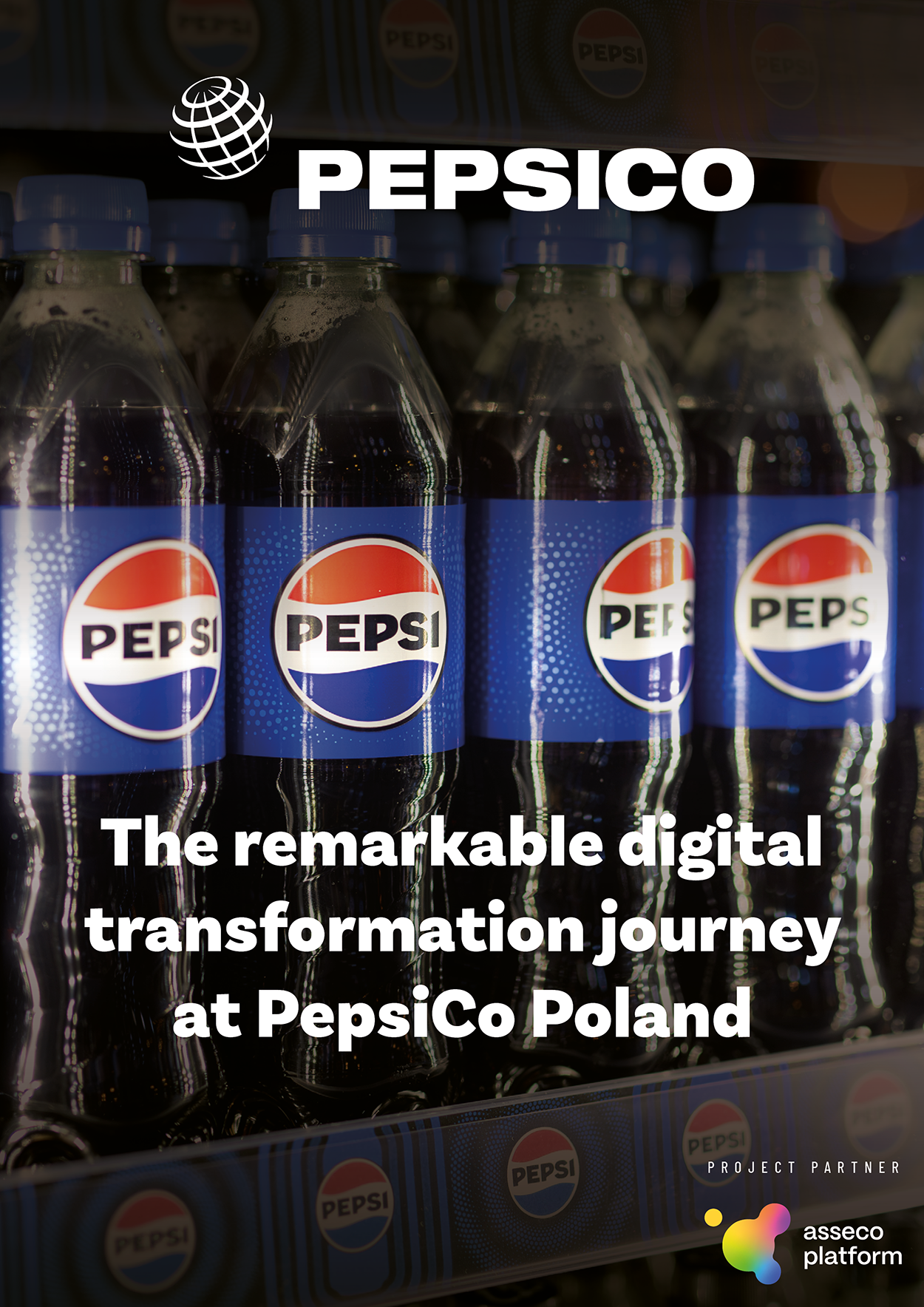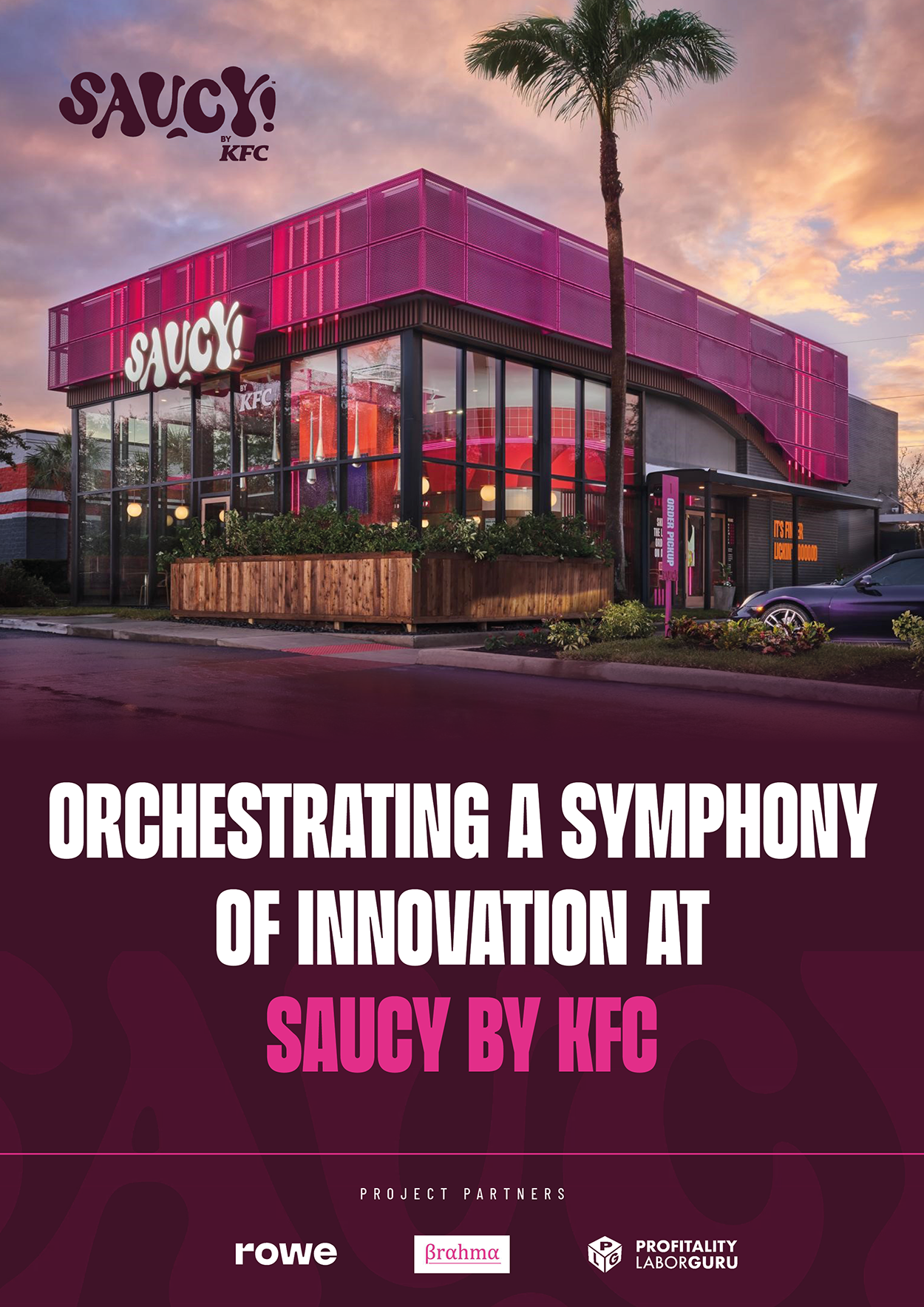SAP’s solutions empower industrial manufacturing companies to design, sell, manufacture, and service highly customised and intelligent products and solutions – driving differentiation and sustainable growth.
Joining us today from SAP is Sayan Bose, Global Head of Industrial Manufacturing and Aerospace & Defense Industries, for a conversation spanning recent innovations in industrial manufacturing, the role of operational excellence within the business and the secret to SAP’s success.

To begin, Sayan outlines the role of a robust strategy when delivering value for industrial manufacturing companies.
“In my role, I’m really focusing on looking at our entire portfolio of software applications, technology platform and business AI and how they can serve the industrial manufacturing industry,” says Sayan. “This way, we can ensure that our customers get the value they need – through leveraging our software to run their entire business processes.”
However, a critical tenet of building this strategy is staying ahead of market trends – challenging in an industry that can often change suddenly and unexpectedly.
“The pace at which the industry is changing means that we need to continually implement new technologies and reinvent processes to make sure we’re able to offer best-in-class software,” explains Sayan. “Our customers have projects they need to deliver, so we assess the technology that will be best deployed in the context of their business processes and how it will impact those processes to ensure we can offer them the value that they need.”
For SAP, ensuring the success of the software it deploys is paramount.
“When we look at cloud applications, we need to ensure that our software offers the ability for our clients to cover their entire value chain including hire-to-retire, procure-to-pay, design-to-operate, and record-to-report,” says Sayan. “Our applications need to ensure every process works together and eliminates fragmentation but also that our customers can select what they need in a modular fashion. This ensures industrial manufacturers can continue to grow at their own pace and stay ahead of any potential problems.
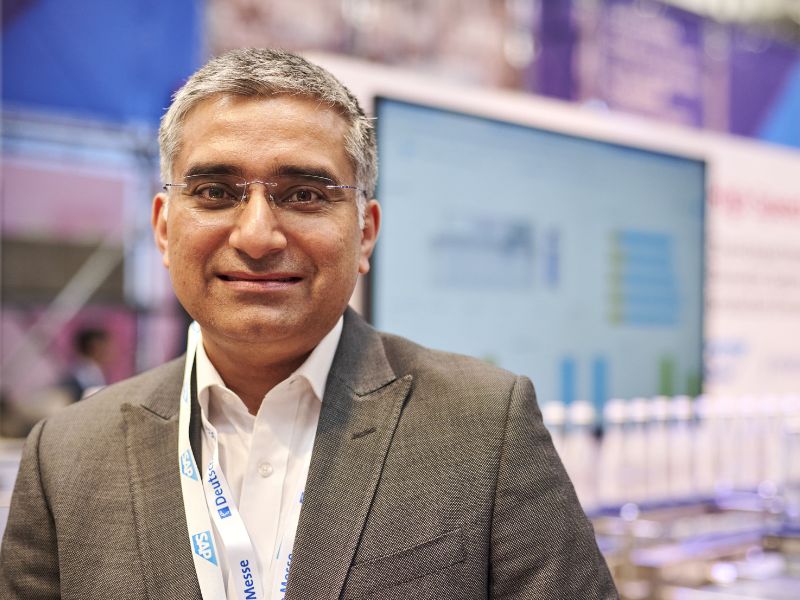
“Embedding technologies like AI into these processes also guides our customers in their decision making, helping them avoid making mistakes and minimising the business risks that come with changing customer demands, and even geopolitical and market movements. Being able to leverage business data from processes, to feed business AI models which in turns improves the processes is a key differentiator for SAP.
“Another important element we’re looking at is sustainability. This needs to be a key dimension of how any business operates, from high-level strategic initiatives to daily operations. Our cloud applications offer specialised solutions to serve the complexities of individual industrial manufacturing companies, including circular manufacturing processes and regulatory reporting – so they operate successfully in the real world.
“While our Cloud ERP and other cloud applications are at the core of what we do, SAP is also focused on the technology platform they run on. Our platform SAP Business Technology Platform (SAP BTP) supports application development and automation, integration and artificial intelligence capabilities.”
“We’ve spent the last few years embedding AI and machine learning and will accelerate this with generative AI (GenAI) within our applications,” adds Sayan “This is really important for our industrial manufacturing companies, as they need to be able to speed up the adoption of AI capabilities, and scale the capabilities across their organisation so they can help every employee be more effective. Already delivered AI capabilities include using AI to provide recommendations to finish incomplete sales orders, keep customers information about order fulfilment issues by uncovering delays, their cause, and provide potential remedies. AI can support salespeople by developing recommendations tailored to specific customers for the most suitable products and configurations, and there are more on the way.
“In addition, in our platform we provide both AI services and an AI core: this gives our partners and customers the opportunity to embed their own expertise within our software and their own applications, so they can implement what is appropriate for them and build accordingly.
“To continue the momentum SAP has established partnerships with leading AI technology providers. We already have over 34,000 cloud customers that use SAP Business AI, and that number is only growing.”
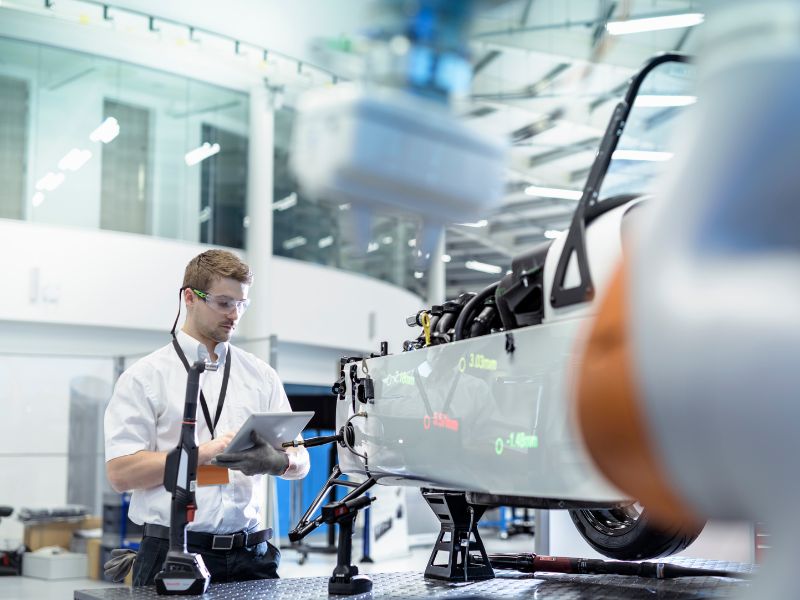
While technologies such as these are crucial for the successful running of any business, Sayan stresses the importance of collaboration and its ecosystem as a partner for success.
“To be able to help maximise our customers investment,” says Sayan. “We work with our vast network of software and technology partner ecosystems to offer industry-specific and innovative solutions to extend our portfolio.”
In order to provide offerings relevant to its customer base, SAP prioritises maintaining a steady dialogue with them.
“We have ongoing conversations with our customers,” elaborates Sayan. “From this, we can see that most industrial manufacturers are focusing on three main priorities.
“Number one is a need to offer more customer-centric solutions and services. For instance, if you’re selling a machine, you’re also selling the software that controls it and offers new capabilities. Often, machines are now more about the software than the hardware, and this adds a level of complexity to managing master data, configuring sales orders, as well as the manufacturing installation and ongoing maintenance.
“By offering this suite of services, industrial manufacturers can offer more customer intimacy and drive higher profit margins, as well as being able to offer these new solutions in a subscription model, which can really lead to more innovative business models.
“Secondly, we’re noticing that these industrial manufacturers are starting to develop more innovative and sustainable solutions in terms of equipment and machinery. With more businesses prioritising green initiatives. Industrial manufacturers are being driven to develop more sustainable and circular industrial solutions, but they also have to take into account costs and margins. This can be a difficult balance, which is why the third focus we’ve noticed with a lot of manufacturers is around standardising their operations. You need to look at your entire operations holistically so you can easily scale, be more resilient, and embed new innovations within your business practices.
“With manufacturers focused on these three pillars, we need to ensure that our portfolio of cloud applications will give our customers the ability to run their business today and yet still be able to innovate their operations effectively. A great example of that has to be our innovations within the AI space.
“One of our customers is Kaeser Kompressoren, who is a global supplier of compressed air systems. When we spoke to them recently, they explained that the process of configuring the right compressor for the needs of a specific customer was challenging to manage with their current data system.
“By leveraging our modular cloud solutions, including SAP intelligent product recommendation with Gen AI capabilities, they were able to more efficiently configure complex compressors for specific sites. This has made a huge difference in terms of how they manage and produce products going forward.
“For us, this is a central example of what we’re trying to achieve. If we can bring technology into the context of the business, then these industrial manufacturers are able to achieve what they have lined up for themselves – in this year and beyond.”
Sayan believes that having this focus on customers and industry-specific processes has been instrumental in SAP’s ability to thrive.
“Customer centricity has played a crucial role in our success,” says Sayan. “We’ve taken the time to really invest in working with our customers to see how these applications can give them value before we bring it to the larger market space. This helps us understand how these capabilities work on a more intimate level, and has really given us that edge.
“SAP also invests significantly in engineering and development. With so many development centres around the world, we’re constantly looking at all dimensions of potential growth. Ultimately, we’re innovating for the customer by working collaboratively with them in an industry context.
“Alongside this, we’re very lucky to have such knowledgeable and capable people working for us. Being able to help customers really identify industry-specific capabilities makes a huge difference for them, and it’s something SAP does exceedingly well.”
Here, Sayan elaborates on how SAP has been able to build a strategy that ensures its solutions are effective in today’s market.
“From an operational standpoint, we have a few key dimensions that come into play when building a strategy,” says Sayan. “However, having a simplified go-to-market roadmap is key. In today’s world, companies are making sure that the software they use serves a specific purpose. If it doesn’t, then they will find a new option – which we want to avoid.
“So we need to make sure our structure is clear. When a customer adopts SAP, our responsibilities need to be aligned across that customer’s entire value chain journey, allowing our experts to work closely with them and help our customers adopt our solutions, and in the process develop a close relationship with them. By having this relationship, we’re able to get the feedback we need to further enhance our portfolio.
“We’ve built a clear, simplified partner ecosystem model, because we have such a range of partner relationships – from partners who help us enhance our software to partners who increase the presence of SAP in the marketplace. Our goal is to make it as straightforward as possible for these partners to work alongside us, as a key part of our go-to-market strategy.”
With such a strong foundation, SAP is expertly positioned for the future of the market.
“SAP is in a good spot,” concludes Sayan. “We’re staying ahead of emerging technologies, we understand how specific industry processes need to come together and, most importantly, we understand the data in context of the process and the business. Going forward, if you want to leverage any new technology, data will be key.
“It’s data which fuels these end-to-end business processes and, combined with our applications and AI capabilities, it can be very powerful. When you put all of this together, SAP can facilitate growth for any industrial manufacturing company – from a small business to an industry titan.”
Learn more about SAP here.
ADDED VALUE
HANNOVER MESSE
“I’m looking forward to our attendance at HANNOVER MESSE,” says Sayan. “We have a showcase where we talk about our capability to offer end-to-end business processes – from design to operation for manufacturing companies of all shapes and sizes. I’m very excited to have the opportunity to meet new and existing customers and discover how industry leaders are envisioning 2025 and beyond.”
Leadership strategies
“Simon Sinek’s thoughts on leadership have really shaped how I approach my own position,” says Sayan. “The way he frames leadership in terms of how you want to drive initiatives and bring about change really excites me, and I’m constantly reshaping the way I work in accordance with the things I have learnt from him.”
Sayan recommends…
“Over the years, I have been fascinated by Yuval Noah Harari,” says Sayan. “The first thing I read by him was Homo Deus: A Brief History of Tomorrow, and I’ve recently read his latest book Nexus: A Brief History of Information Networks from the Stone Age to AI. I’ve loved learning more from his perspectives on the technology landscape, and these books have been such a useful tool for me to further my own opinions on these topics.”
Woodworking
“Outside of work and reading, I really enjoy woodworking,” says Sayan. “Taking something from an initial plan to a project I’ve built myself gives me a huge sense of satisfaction. It’s also helped me form a closer relationship with my neighbour, who’s an octogenarian. He also has the same hobby, so we often exchange ideas, work together and give each other new challenges. It’s been a great way to get to know him better.”
Connect with Sayan on LinkedIn.
Newsletter Sign Up


